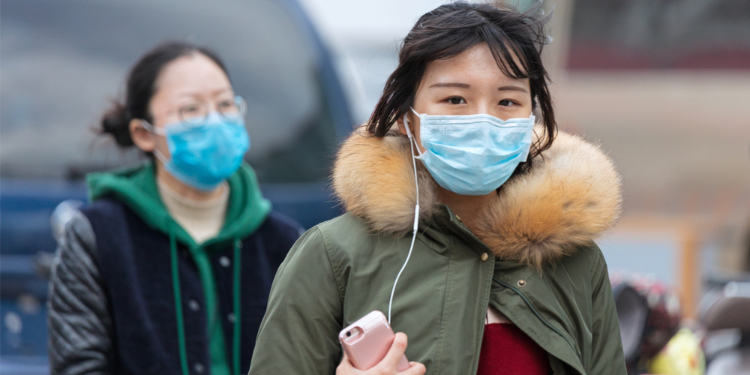
While local authorities are taking strict measures to prevent a second wave of COVID-19 infections, life is slowly getting back to normal in China. Four expats in China talk to Expat.com about their experience during the lockdown and how they are expecting things to be in the coming weeks.
Lockdown in China hasn't been a casual affair for everyone in China. Nash, an American expat in Changchun, talks about her 14 days of 'house arrest' – which was far from being fun. "I had a video camera placed outside my front door to ensure I didn't leave my apartment for those 14 days. I had no plans to leave as I was willing to do what I was required to do. That period of time was from February 6th (when I returned) until February 20th when I was released from 'house arrest'. Since then, she has been under modified lockdown in her city as things are slowly going back to normal. "But it's a new 'normal'. Traffic went from nothing to nearly back to its usual gridlock, but it took several weeks. The air quality was great for a short time, and that was a plus. It went from deadly silent to the usual noisy level that is China but again it's been gradual."
A Canadian expat in Liao Ning, in North-Eastern China, Carmelo also had a quite frustrating experience even though lockdown wasn't really as limiting as it felt at that time. The hardest part, for him, was about living in a rural Chinese community with very few expats is the lack of community and resources available in the initial stages of emergency. "I have a family, my wife is older, and my son was only about 14-15 months when things got really bad in China. With the uncertainties of the situation and the 'laid back' mentality some expats had about it locally, it was conflicting and almost very split in regards to public opinion; is it serious or are people overreacting?" He admits that he was overreacting, but he had his reasons. “At that time, no one knew what would happen to an infant or toddler if they fell ill. However, eventually, some did, they were alright. I largely calmed down at that point, but it was still frustrating knowing that people were still not taking it as seriously as they should have been, Chinese and expats alike."
In Suzhou, meanwhile, things were quite different as the lockdown wasn't as hard as in other cities like Wuhan. "Here going out was not forbidden, but discouraged unless strictly necessary and everybody stayed home", says Marta, a Spanish expat. "At the beginning, I felt quite angry because it was the Chinese New Year holidays, and I had been looking forward to travelling around a bit and meet some friends. Later I accepted the situation and got used to staying at home all the time. Some days I would think about going outside for a walk, but in the end, I was busy doing so many things that I didn't even have time!" For Laurent, a French expat in Shanghai, homeschooling was the only hard part of the lockdown.
Now that is supposed to be over, things are slowly going back to normal. "The school I am working for is reopening April 15th! Guessing that without a May Holiday (as they claimed we spent it up when the lockdown was going on), I'll be working overtime", says Carmelo. But this isn't the case for everyone, like Nash who is still unsure careerwise. "I am a teacher, and we can't go back until they open up all the public schools, and no one can tell us when that will be. So I've had no work or income since February 6th, and don't know when that will change." However, leaving China isn't an option for Nash as the situation is getting worse in the US. Carmelo doesn't have any travel plans either.
Most people believe that the lockdown isn't over yet, even though some are hoping that it's over. "I wouldn't have any choice but to stay at home all the time again and only go out to buy groceries, but I hope it doesn't get to that. We were locked for one and a half months, and I'm not looking forward to repeat it!”, says Marta. While some businesses have started opening, it's still quiet almost everywhere, compared to before lockdown. "Foreigners are still discouraged from participating in some areas of public activity and to top it off, foreigners are still not welcomed to return to China. I mean, one can leave, but will not be able to return-guess it's gone from 'lock down' to 'lock out'", says Carmelo. Nash is also mentally prepared for going into lockdown one again. “No it won't be fun, but if needed, I can do it. I tend now to stick to my neighbourhood and stay mostly at home. It's not the way I want to spend my time, but it's practical for now”.
However, they do agree that China is taking significant precautions to prevent a second wave of COVID-19, like locking anyone coming from overseas in a hotel room for two weeks. According to Carmelo, all citizens now have a 'Citizen Cloud' app account which scans everywhere they go-including their workplace. "Good, but I guess it won't really count as 'effective' when thousands of students come from all over China to the campus and don't complete a two-week quarantine (even though coming out of province and taking, planes, trains and automobiles)".
Marta, for her part, points out that China has not lowered its guard yet. "The problem here now is that there are asymptomatic cases. In Suzhou, they are implementing many testing stations where people can go if they suspect they have been infected. China has closed the border to foreigners and reduced international flights to one per airline per week, thus reducing the chances of having imported infections."
For now, China retains global attention as the risk of resurgence remains real. Expats and Chinese alike are taking personal precautions like wearing masks and gloves and regular handwashing, etc. Will that be enough? The coming weekends and months will be determining.



















